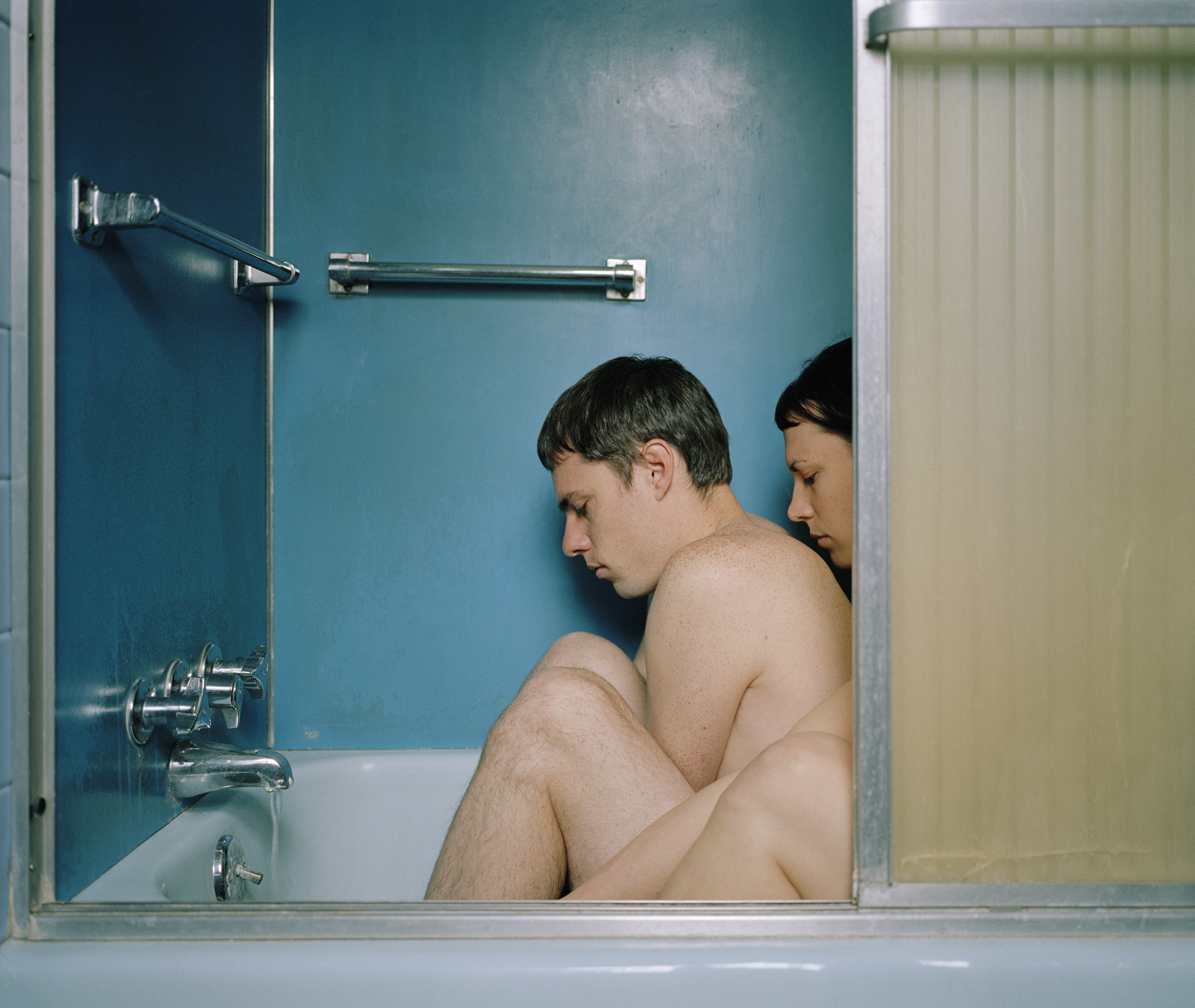
Carrie Schneider, from the series Derelict Self (2006-2007)
Saturday, October 7, 2017 - 5:00pm to 8:30pm
Slought Foundation, 4017 Walnut Street, Philadelphia, PA 19104
Carrie Schneider Exhibition Opening Reception, 5-8:30pm
Conversation between Kaja Silverman, Carrie Schneider, and Kyle Abraham, 6-8pm
"More Than Private" runs from October 7th until November 30th, featuring the works of Carrie Schneider and her collaboration with choreographer Kyle Abraham
Slought is pleased to announce More Than Private, an exhibition of the photographic and video work of New York–based artist Carrie Schneider, curated by art historian Kaja Silverman. This is the first time Schneider’s work has been exhibited in Philadelphia, and her largest solo show to-date on the East Coast. Works on view span the last decade, and include Las Bebidas, Recession, Derelict Self, Reading Women, the Summer Drawings, three of Schneider’s videos, and five of the Dance Response videos, on which Schneider collaborated with choreographer/dancer Kyle Abraham. More Than Private will open on October 7, with a conversation between Schneider, Abraham, and Silverman about the Dance Response Project. The show will run until November 30, and also feature a second conversation between Schneider and Silverman, focused on Schneider’s solo work.
Although Schneider, like many of her peers, is a politically engaged artist, she differs from them in one striking way: she backs away from the abstract terms through which we conceptualize our “togetherness”—“masses,” “public,” “people,” and even adjectives like “plural,” and “collective.” She gravitates instead to objects, activities, experiences and conditions that are saturated with private meanings, and that might therefore be seen as a-political. “Solitude,” ”intimacy,” and “interiority” are her signature concerns. None of the works in this show, though, is private in the way property is supposed to be—that “belongs to,” or exists “for the use of one particular person or group of people.” There is also no work in this exhibition that is private in the way a person is supposed to be—complete, autonomous, and self-referential.
It is perhaps for this reason that we never feel that we are violating someone’s privacy when we are looking at Schneider’s work, even when the topic is something as “off limits” as the incest taboo. In fact, the opposite, is true: even at their most personal, the issues at the heart of Schneider's work are always"more than just private." This last concept comes from a 1925 letter from Rainer Maria Rilke, who had been living in a remote Swiss castle for six years, but had recently come to think of his writing as “more than just a private event.” It is in a much earlier letter, though, that he offers his richest elaboration of this concept, and the one that—in its emphasis both on reading, and on the relational possibilities inherent in our childhood memories--is the most relevant to this show.“One person or another would read what especially struck home to him in [the inexhaustible pages of Swann's Way],” Rilke writes, “and would hold it out in a specific way to the general opinion…and to many a one his own childhood would appear out of half-oblivion, and one would pass from tale to tale far into the summer night, but also far into the mutually rich true and alive.”
Mutually rich. Mutually true. Mutually alive. It would be hard to imagine a better description of Carrie Schneider's work, or of the kind of political engagement that it promotes.

